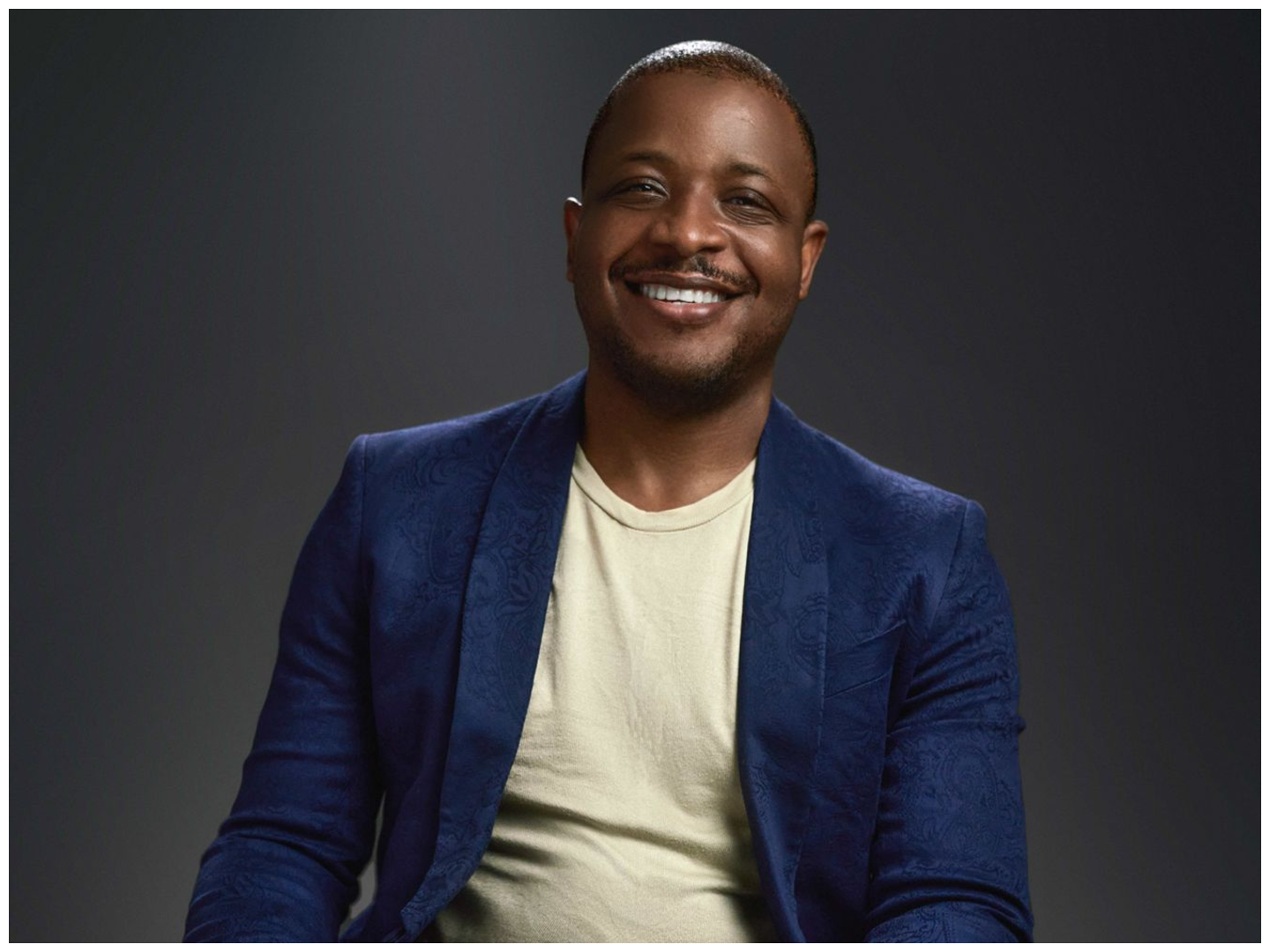
Maybe it’s the accountant in him, trained to look for what’s missing or maybe it’s just that rare empathy that allows him to see people beyond the surface. Either way, when Lani writes, he doesn’t just build characters. He holds up a mirror to our secret selves.
“We are in a culture of secrets,” he began. “The average person doesn’t share the entirety of their story or pain points with even those closest to them. So if we can create stories or characters where those secrets are explored, audiences feel seen.”
Relatability. Not the glossy, airbrushed kind, but the raw, uncomfortable one that makes you whisper, “Omo, that’s me sha.”
For Aisida, who went from being a chartered accountant to being dubbed King of Web Series, storytelling isn’t just entertainment. It’s therapy.
It’s what led him to begin his career in 2015. His characters, from Phases to the flawed pastor in Oga Pastor, exist to make people exhale. “We are creating characters people can relate to,” he says.
Most Nigerians grow up being told to keep their pain private, to endure, to never “wash dirty linen in public.” Yet here comes a writer who insists that our secrets deserve screen time.
Through his shows (Skinny Girl in Transit, Rumour Has It, Love Like This), Aisida quietly builds a safe space for confession.
He gives people permission to talk about heartbreak, shame, or moral conflict. Through fiction, Nigerians finally get to say what they can’t say out loud.
ALSO READ: Nigerian Series You Should Binge Watch on Netflix
How He Got Here
Aisida didn’t start out as a storyteller. In fact, he started with balance sheets and boardrooms before quitting accounting to chase passion. “I had a day job, and then like a lot of creatives, I quit my day job for this,” he says.
His first project, Plus 234, opened the door to a new world, followed by scripts for Africa Magic films and his TIFF-recognised feature Just Not Married.
Plus 234, which became his passport into the world of storytelling, explored the everyday lives of working-class Nigerians, people bound by routine, sharing the same spaces and struggles for eight hours a day, five days a week. It was honest, funny, and deeply human.
From there, Aisida wrote a number of Africa Magic original films and later penned Just Not Married, a feature about two brothers chasing different versions of freedom: one trying to rebuild his life, the other returning home to confront his past.
The film earned critical acclaim and a coveted spot at the Toronto International Film Festival (TIFF), marking Aisida’s arrival as one of Nollywood’s most promising storytellers.
Soon, his name became synonymous with the Nigerian web series boom, a period where young viewers found themselves reflected online before TV caught up.
READ THIS: The Real Housewives Ultimate Girls Trip Africa Is Heading to Brazil
Relatability + Vulnerability
When Lani says “relatability,” he doesn’t mean lazy realism. He means emotional truth, that sweet spot where art imitates life a little too closely. His characters are rarely heroes or villains; they’re just people navigating moral grey areas.
In his recent movie, The Herd, for example, the story isn’t as simple as faith and family; it’s a call to action. Directed by Daniel Etim-Effiong, starring Kunle Remi, Genoveva Umeh, this thriller follows a couple whose wedding day turns into a desperate fight for survival when dark secrets emerge. The film explores themes of national insecurity, betrayal, and religion.
The Herd stirs something, a mix of anger and reflection about the country we call home. It forces you to ask: What if Nigeria happens to me or someone I love? It makes you come face-to-face with the systemic failure we’ve come to normalise. It’s a wake-up call, a quiet but urgent cry for accountability and change.
“If we can create stories or characters where those secrets are explored,” he says again, “audiences feel seen.”
That’s the emotional transaction Aisida is obsessed with, making people feel seen and heard. Because once they do, they start healing, even if they don’t realise it.
Fiction as a Safe House
There’s a line that perfectly sums up why Aisida’s writing connects: “Audiences start to speak about the characters’ situations because it’s safer to talk through fiction.”
And it’s true. Nigerians might not talk about therapy, depression, infidelity, or loneliness in real life, but they’ll debate Shalewa’s choices in Skinny Girl in Transit for hours.
That’s the paradox of his storytelling: he creates fictional characters so real that people use them as emotional translators.
The Future of Nigerian Stories
Now, through his company African Stories Untold, founded in 2020, Aisida is taking that mission even further, spotlighting stories “near us but often untold.” The mission for Lani is to illuminate the diverse heritage of Africa through authentic and transformative narratives.
“I started African Stories Untold because I was tired of seeing our stories told incompletely or not at all. Take something as universal as childbirth; the African experience is rarely seen. That led us to create My Birthing Experience, a docuseries that celebrates women’s journeys across the continent.”
Through projects like this, his company aims to reveal the diversity, beauty, and modernity of who we are as Africans.
Fom documentaries to new shows exploring modern African identities, he’s building an ecosystem for stories that make people feel and think. Some of these stories include Deeper, Say Who Die, My Cerebral Palsy Birthing Experience, and Love and Light.
At his core, Lani Aisida remains the same, the quiet craftsman trying to get Nigerians to confront themselves through screenplays.
RECOMMENDED: If the TV’s On, There’s a 90% Chance It’s “Brooklyn Nine-Nine” Again
